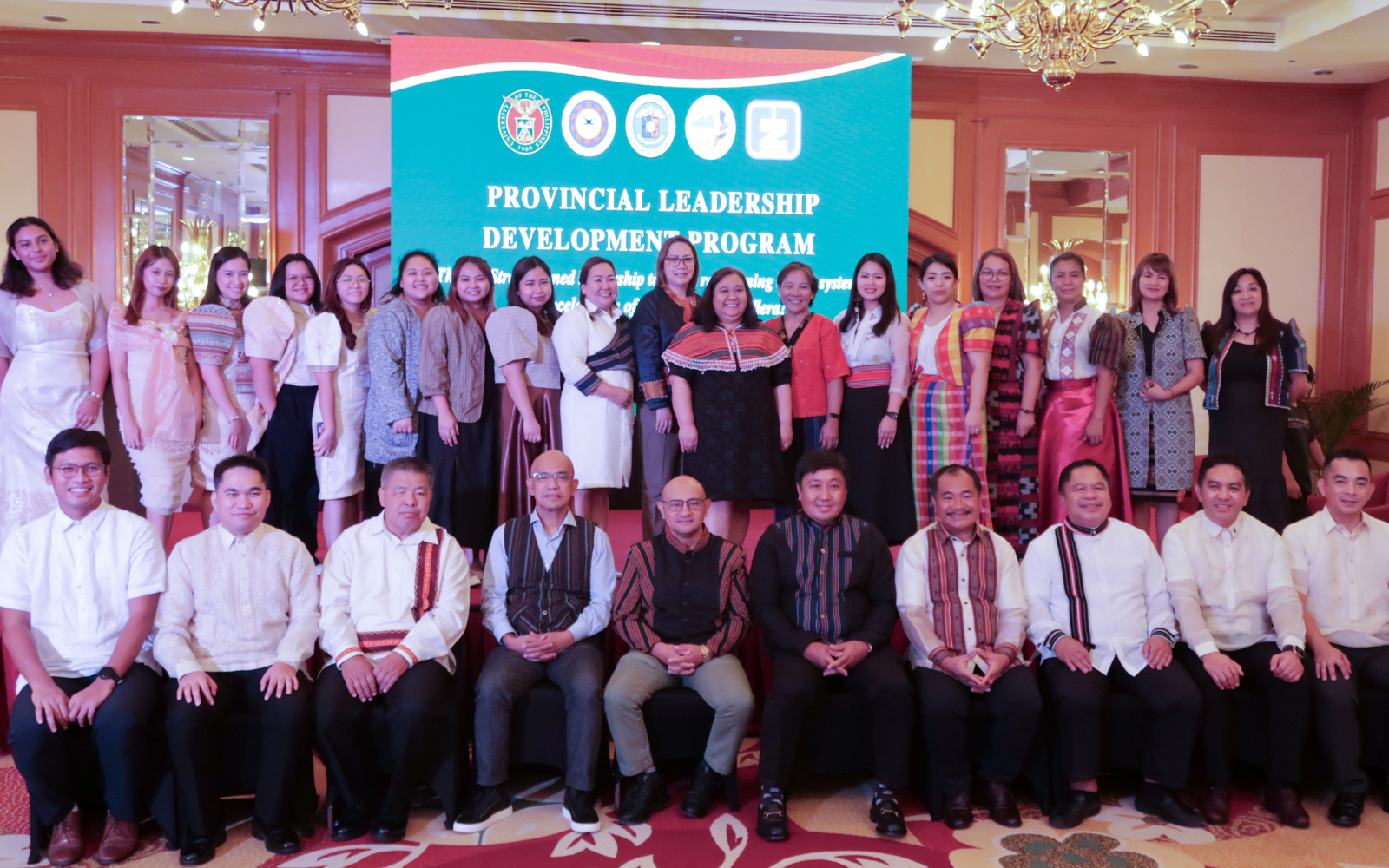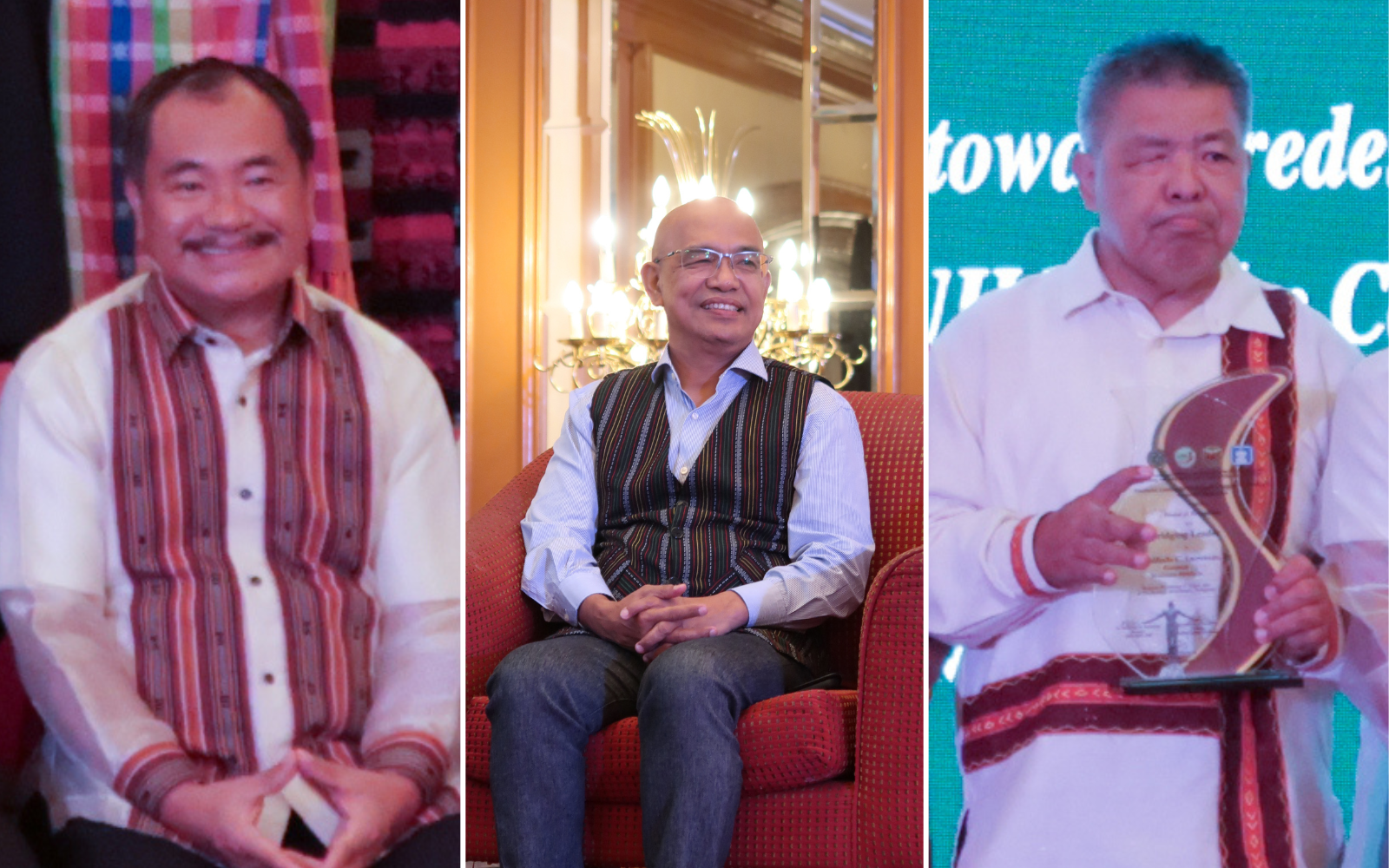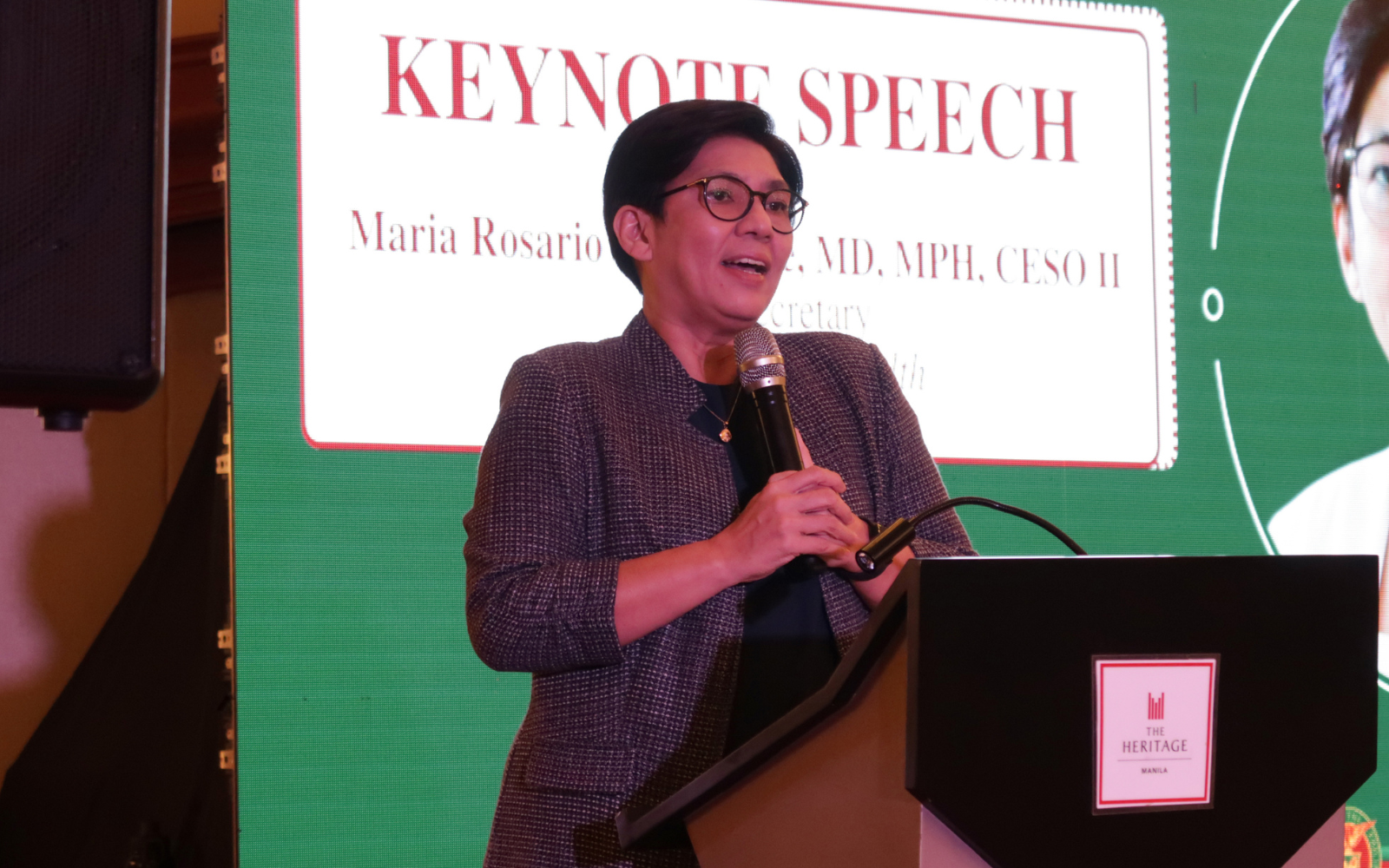Strengthening Health Leadership: Cordillera’s Path to Universal Health Care
News | by Krizzia Esperanza

On August 9, 2024, the Provincial Leadership Development Program (PLDP) for the Cordillera Administrative Region (CAR) concluded with a colloquium at The Heritage Hotel Manila led by the University of the Philippines-College of Public Health (UP-CPH), academic partner of the Department of Health-Center for Health Development (DOH-CHD) in CAR, and the Zuellig Family Foundation (ZFF).

The event, themed “Strengthened Leadership Towards Redesigning Health Systems for the Acceleration of UHC in Cordillera,” gathered the five provinces of CAR (Apayao, Benguet, Kalinga, Ifugao, and Mountain Province) through their respective governors to share lessons and strategies on how they structured and organized their health service delivery.
The colloquium featured reflections from the governors of five provinces:

Collective Action for Health: Governor Elias C. Bulut, Jr. of Apayao believes that a whole-of-society and whole-of-government approach is essential to tackle the social determinants of health. He shared how Apayao has mobilized various sectors—from local government units to community organizations—in a concerted effort to improve health outcomes. He pointed out that only by working together can communities address issues such as poverty, lack of education, and inadequate access to healthcare, which are the root causes of many health problems.
Comprehensive Approaches to Health: Governor Melchor D. Diclas of Benguet spoke on how socio-economic status, education, and access to resources significantly influence health outcomes. He shared that Benguet’s health programs now consider these factors, ensuring that interventions are more tailored to the specific needs of the community. By recognizing and addressing these underlying issues, Benguet aims to create a more equitable health system that reaches even the most vulnerable populations.

Leadership and Critical Thinking: Governor Jerry U. Dalipog of Ifugao shared how Ifugao’s leadership team adopted a proactive stance, anticipating potential obstacles and crafting strategies to overcome them. He said that such foresight and adaptability have been crucial in redesigning Ifugao’s health services, particularly in the face of emerging public health threats.
Strategic Partnerships for UHC: Governor James S. Edduba of Kalinga called on the DOH to invest more in workforce development, infrastructure, and digital health. He also urged the DOH to strengthen support for primary care and service delivery networks and to provide technical assistance on the operationalization of the Special Health Fund (SHF). For ZFF, he recommended enhancing partnerships with community-based organizations to empower local leaders and improve service delivery. Additionally, he suggested that UP-CPH integrate UHC into its curriculum and offer short courses to build capacity in health leadership.
Local Empowerment and Health Equity: Governor Bonifacio C. Lacwasan, Jr. of Mountain Province reflected on the ‘Barangay Muna’ initiative, which focuses on empowering local communities to take charge of their health. He discussed how this grassroots approach has been pivotal in addressing issues like malnutrition and non-communicable diseases, which often stem from deep-rooted socio-economic challenges. Governor Lacwasan emphasized the importance of working closely with barangays to ensure that health interventions are not only effective but also sustainable.

The event featured a keynote address from Dr. Maria Rosario Vergeire, DOH Undersecretary, who highlighted the progress made and the ongoing challenges in UHC implementation. Dr. Vergeire urged leaders to strengthen connections between municipalities and provinces to create more coordinated health care networks. Panel discussions included insights from former Regional Directors Dr. Rio Magpantay, Dr. Amelita Pangilinan, and Dr. Myrna Cabotaje, providing valuable perspectives on health system improvements.
PLDP, a two-year initiative led by DOH and UP-CPH and supported by ZFF, has empowered provincial leaders with the skills needed to transform health systems. Through a mix of classroom learning and practical experience, participants have developed strategies to accelerate UHC and create sustainable health solutions for their communities. This closing colloquium marks a new chapter in CAR’s health leadership, with strengthened governance and innovative approaches paving the way for better health outcomes across the region.
